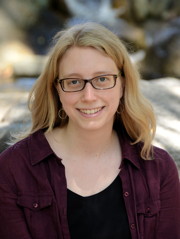Dr. Katherine Dooley

Office: Queen’s Building N/1.12, Cardiff University Degrees Earned
Experience
Awards
Memberships
Research InterestsI work in the exciting field of experimental gravitational-wave physics. Predicted by Einstein in his General Theory of Relativity over 100 years ago, gravitational waves are extremely small ripples in space-time created by astrophysical events like the collision of black holes or the death explosion of stars. A network of gravitational-wave detectors around the world, from the U.S. to Italy and Japan, have been and will be used to directly detect the effects of gravitational waves here on Earth. The first detection in 2015 of two black holes that collided while traveling at half the speed of light(!) made headlines around the world and earned the founders of LIGO (the Laser Interferometer Gravitational-wave Observatory) the 2017 Nobel Prize in Physics. I helped build the LIGO detectors and am designing new technology to make them even better. Ground-based gravitational-wave detectors are multi-kilometer-long laser interferometers that push the limits of precision measurement. I’m interested in the development of new instrumentation and experimental techniques to improve the interferometers’ sensitivity to gravitational waves. My work includes the development of quantum optics experiments to manipulate Heisenberg’s Uncertainty Principle and the prototyping of a tilt-free seismometer to filter out the unwanted effects of Einstein’s Equivalence Principle. Together, both lines of research will ultimately improve the interferometers’ sensitivity to coalescing black holes and neutron stars, put limits on the elusive neutron star equation of state, and increase the duty cycle of the detectors. Home PageDr. Dooley’s Home Page |